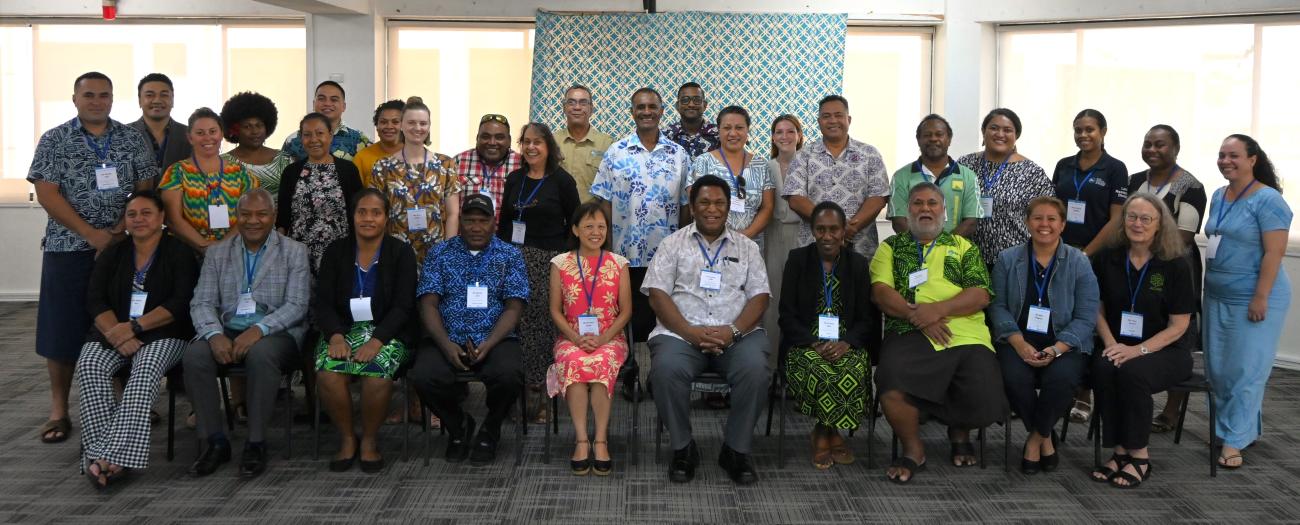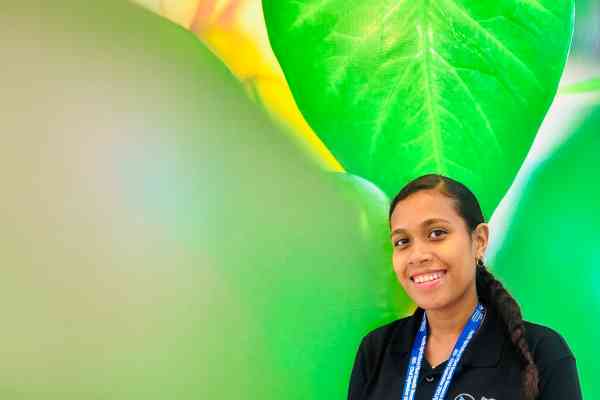(Contenu disponible en anglais uniquement)

27 February 2024
Suva, Fiji – From February 21 to 23, coconut experts from 14 Pacific countries and territories convened a Board meeting at the Pacific Community (SPC) offices in Suva, Fiji. This first face-to-face meeting for the coconut research and development platform, Pasifika NiuNet, gave the space for actionable outcomes towards a resilient and sustainable coconut sector in the Pacific.
In 2021, a review by researchers from SPC’s Land Resources Division (LRD) demonstrated that the coconut remains a top priority in terms of food security and supporting economies in the region. Despite this, no real change has been observed in coconut development for many years, which has led to missed opportunities and low global market share. Therefore, a more inclusive and collaborative approach to the coconut sector in the region is crucial to improving the livelihoods of the peoples of the Pacific.
Dr Ramona Sulifoa, Research for Development Adviser at LRD, spoke on the need to tackle this gap: “At LRD, we are working in silos on concomitant coconut programmes and projects. We want to bring the studies together to address all the research’s needs. An integrated programme would do that by improving efficiency, effectiveness, management and impact, as well as preventing duplication of research and development in the coconut area.”

Several outcomes came out of the three-day workshop, such as a consolidated vision for Pasifika NiuNet and the finalisation of the foundational documents (Terms of Reference, Board and Technical Working Groups structure that will guide the development of the Theory of Change and Strategic Framework) towards a Pacific agenda for impact. Country profiling has demonstrated the strengths, capacities, priorities of each country and territory and the commonalities among them that feed into a regional profile. Participants also approved the final composition of the Governance Board and agreed on criteria for members of the Technical Working Groups, ensuring balance between sectors, as well as country representation.
Mr. Itaia Lausaveve, a participant in the Board meeting and Chief Technical Advisor for the NGO Live and Learn Environmental Education, reflects on the critical relevance of the workshop: “In Tuvalu, coconut is one of the main tree crops that we use for consumption. However, we didn’t have any opportunities to revive the interest in the coconut, so this consultative workshop and the Pasifika NiuNet platform are very important initiatives. Whether it is for the purpose of livelihoods, food security or economies, we have to work on coconut together moving forward, because it will sustain our countries, whether from small islands or big islands.”
The interim Governance Board is now in place, and the inaugural Board meeting will be held in June 2024. A coconut strategic action plan will be discussed, to support uptake and further development of Pasifika NiuNet.

